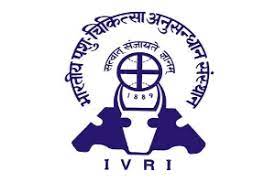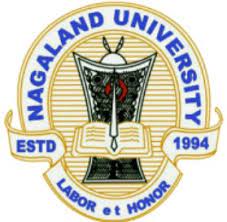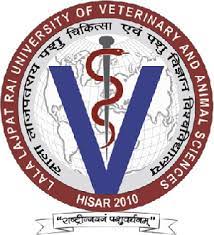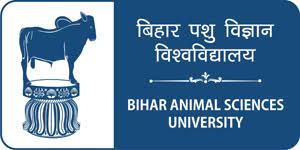The Ph.D. in Livestock Production focuses on improving livestock productivity and quality. It is a multidisciplinary degree program that offers courses in animal physiology, genetic engineering, microbial engineering, and meat processing. Graduates of this degree program have many career options, including animal health and welfare, farming, and research. They may even be able to work on a farm and manage the entire operation.
The Ph.D. in Livestock Production aims to train researchers in animal science. Emphasis is put on participation in research groups and transmission of research methods and techniques. Upon completion of the program, candidates should be able to conduct research in their chosen area. During the Ph.D. program, students should develop specialized knowledge in animal nutrition, breeding, and genetic improvement. This will enable them to provide the best products for human consumption.
What is a Ph.D. in Livestock Production - How is it Different From Other Types of Ph.D.? A Ph.D. in Livestock Production & Management is an advanced doctoral degree program that prepares graduates to be a leader in the field. The degree is designed to prepare candidates for a successful career in animal husbandry. It is a comprehensive program focusing on research and development in the animal industry.
Ph.D. in Animal Nutrition Eligibility
Candidates who want to take admission in Ph.D. must have a post-graduate degree in Animal Nutrition and its relevant discipline with at least 55% marks from a recognized university and must have passed the national level entrance examination or university level entrance examination. National level entrance exams like UGC NET / UGC CSIR NET / GATE / SLET or University entrance exams consist of written tests and personal interviews.
Benefits of a Ph.D. in Livestock Production & Management
A Ph.D. in Livestock Production focuses on the science behind the production of livestock. A successful candidate must have a thorough knowledge of animal biology and behavior. He must also be an excellent businessman who can market and promote the products of his research. A salary ranges from $25,000 to $65,000 depending on the level of qualification and the company. The program includes health insurance and retirement investment, housing and utilities, and a meal allowance.
Government agencies employ scientists specializing in animal health and welfare. These professionals can work in livestock marketing, animal nutrition, and meats inspection. Others can find employment in government research. Besides working for governmental agencies, they can also become laboratory technicians in environmental quality and waste management. They can even practice agriculture in developing nations. In addition to pursuing a Ph.D. in Livestock Production, a degree in animal science can be beneficial to those who want to start a career in the field.
There are numerous career opportunities in animal science. You could work in a government agency that focuses on animal welfare or environmental regulations. Other jobs in government agencies involve animal health and nutrition research. You can also work as a laboratory technician in environmental quality, waste management, or computer modeling. There are many benefits of a Ph.D. in Livestock Production - Read More to Discover
The Career Opportunities of a Ph.D. in Livestock Production and Management
The goal of a Ph.D. in Livestock Production - also called animal science-is to develop and improve livestock production and management practices. This graduate program prepares students for careers in academia, the livestock industry, public relations, and marketing. Additionally, graduates of this program can pursue higher education in animal research and teaching and biotechnology. In addition to working in the fields of livestock, these graduates can pursue a career in government service, as a policy adviser, or as a manager.
A Ph.D. in Livestock Production specializes in animal breeding and treatment. It focuses on the breeding, raising, and processing of livestock. The curriculum is broken into six semesters. Applicants should expect to complete a dissertation by the end of the third semester. A thesis is required to earn a Ph.D., but a Ph.D. is not necessary for employment.
After earning a Ph.D. in Livestock Production, students may work in a wide range of fields related to the farming industry. The careers in the field include research, agriculture, and education. In addition to the practical aspects of livestock management, the program focuses on agribusiness management. It offers a variety of job options. After graduating, you can pursue a career in agribusiness or government.
The Future Scope of a Ph.D. in Livestock Production & Management
The livestock sector is one of the most important sectors in the global food system, contributing to the reduction of poverty and ensuring agricultural development. It generates 40% of the global agricultural output and sustains the livelihoods of nearly 1.3 billion people. Furthermore, its impact on human health and the environment is also increasing, as are the challenges of managing livestock and other farm animals. With the advancement of technology and modernization, the future scope of this field is very bright.
A Ph.D. in Livestock Production focuses on the production and management of livestock. Graduates will study animal behavior, genetics, behavior, physiology, and the marketing of various types of meats. The average salary for a livestock producer ranges from $25,000 to $65,000, with benefits such as health insurance and retirement investments. The salary will cover your housing and utilities, and may even include a vehicle and meat allowance.
The field of animal science is a diverse one. It encompasses all aspects of livestock production, from animal breeding to public affairs. You can also find employment in companion animals, research, and allied specialties. The career scope of an individual in this field is endless. With so many facets to this sector, a Ph.D. can be useful in any area of the livestock industry.
Ph.D. Research Programme duration
The Ph.D. in Animal Nutrition course is a minimum of 3 years and a maximum of 5 min duration. This depends on the university offering the course.
Fees for research program for Animal Nutrition
The average fee for Ph.D. in Animal Nutrition degree is between INR 50000 and INR 500000.
 5 Years
5 Years
 PhD
PhD
 Research
Research


















 back
back